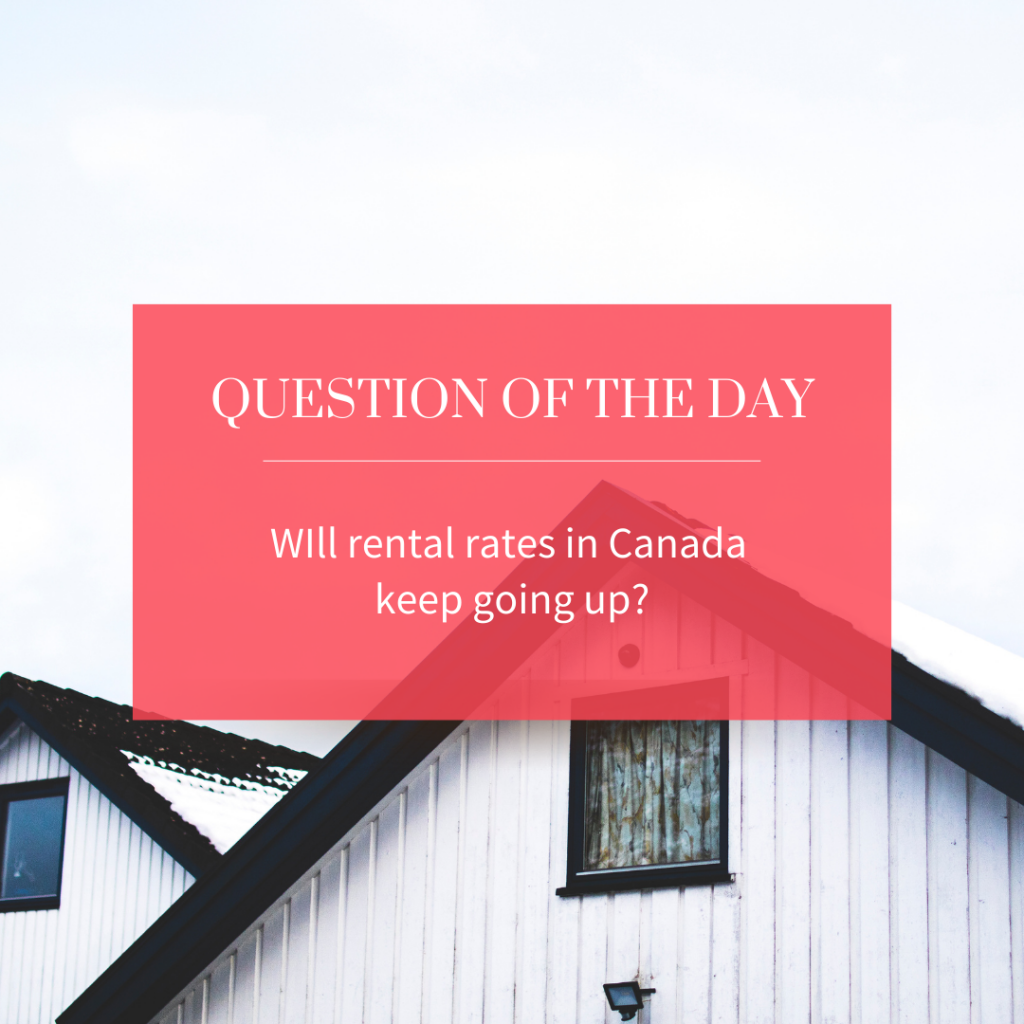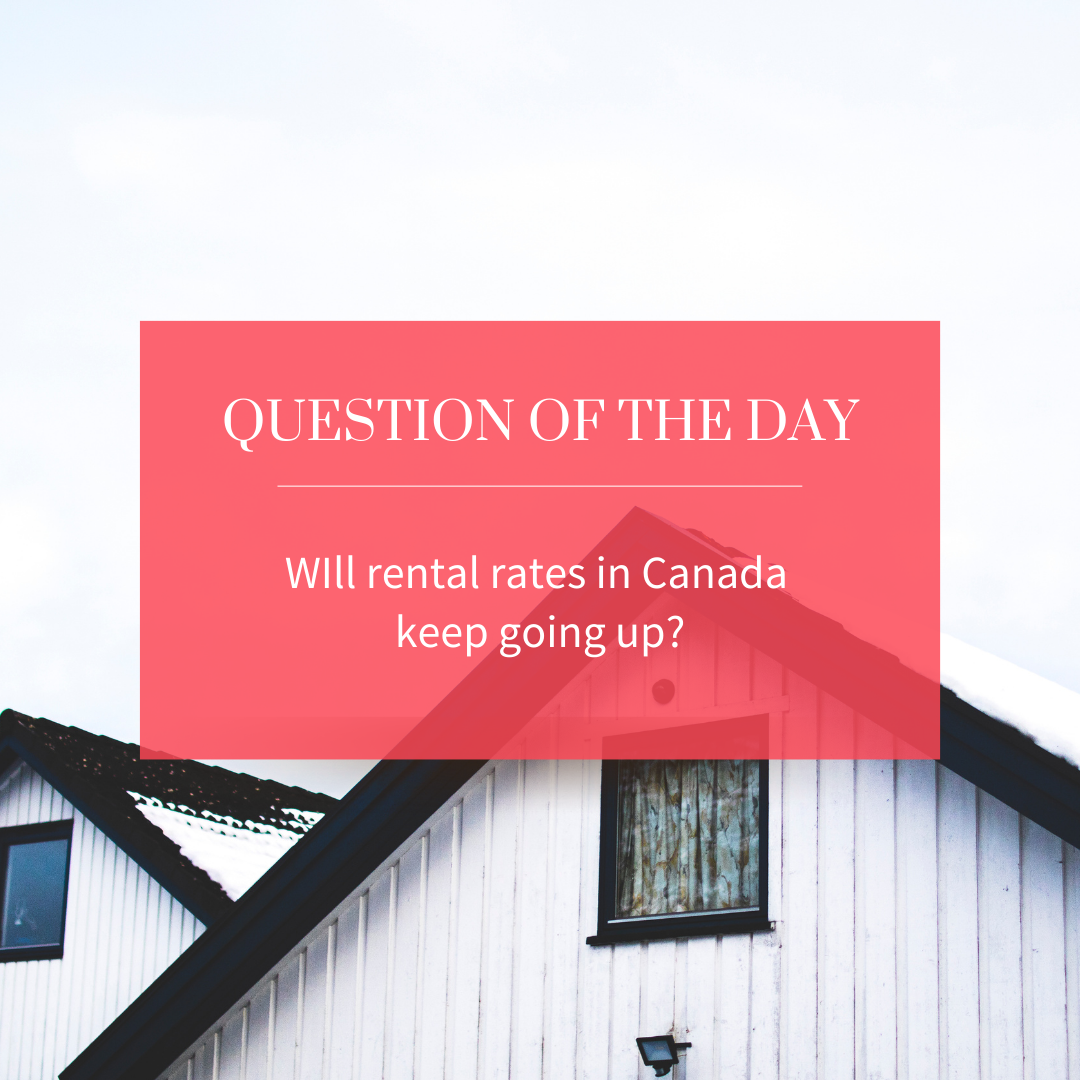The Canadian Rental Market: A Rise in Rental Rates Amidst Interest Rate Changes
Welcome to our blog! Today, we are diving into an important topic that has been impacting many Canadians’ lives: the rising rental rates caused by changes in interest rates. The Canadian rental market has experienced significant fluctuations in recent times, and understanding the correlation between interest rates and rental rates is crucial for both renters and landlords. Let’s explore how changes in interest rates are influencing the rental landscape and what it means for you.
1. Understanding Interest Rates and Their Impact on Rental Rates
Interest rates play a pivotal role in the country’s economic stability. They are set by the central bank and affect borrowing costs for various financial products, including mortgages. When interest rates rise, it becomes more expensive for individuals to borrow money to purchase homes. As a result, some potential homebuyers may delay purchasing a property, opting to rent instead. This increased demand for rental properties can lead to a rise in rental rates as landlords capitalize on the opportunity.
2. Economic Factors Driving Interest Rate Changes
Several economic factors can influence changes in interest rates. Inflation is one of the primary drivers; when prices for goods and services rise, central banks may increase interest rates to control inflation. Additionally, economic growth, unemployment rates, and global economic conditions can impact interest rate decisions. A robust economy with low unemployment might lead to higher interest rates to prevent excessive borrowing and maintain economic stability.
3. The Canadian Rental Market’s Response to Interest Rate Changes
In recent times, Canada has witnessed fluctuations in interest rates due to economic factors such as inflationary pressures, global economic conditions, and domestic economic growth. These changes have impacted the rental market in several ways:
a. Increased Demand for Rental Properties: As mentioned earlier, higher interest rates can deter some potential homebuyers, prompting them to rent instead. This surge in demand for rental properties can result in landlords raising rental rates to maximize their returns on investment.
b. Limited Rental Supply: While rental demand escalates, the supply of available rental properties might not keep pace. Some landlords may be reluctant to invest in new properties during uncertain economic times, leading to a limited supply of rental units.
c. Impact on Affordability: Rising rental rates can significantly affect affordability for renters, especially for those already struggling with housing costs. As rental rates increase, renters might find it challenging to allocate funds for other essential expenses.
4. Tips for Renters and Landlords
a. For Renters:
- Budget Wisely: In a high-demand rental market, it’s essential to create a comprehensive budget that accounts for potential rent increases. Allocating a portion of your income for housing costs will help you manage your finances effectively.
- Long-Term Leases: Consider negotiating long-term leases with your landlord to lock in the rental rate for an extended period, providing stability amidst potential rate hikes.
b. For Landlords:
- Fair Rental Increases: While landlords may want to capitalize on high demand, it’s crucial to strike a balance between maximizing returns and ensuring rental properties remain competitive and fair.
- Maintain Properties: Providing well-maintained and attractive rental properties will attract quality tenants even in a competitive market.
As interest rates fluctuate in Canada, the rental market is inevitably impacted. Understanding this correlation is vital for both renters and landlords to navigate the changing landscape effectively. For renters, budgeting wisely and considering long-term leases can provide some stability, while landlords must strike a balance between maximizing returns and maintaining fair rental practices. By staying informed and adaptable, all parties can better navigate the rising rental rates and the ever-changing economic environment.
#RentLife #RentLifeCanada #RentalRates #Renting #AffordableHousing

